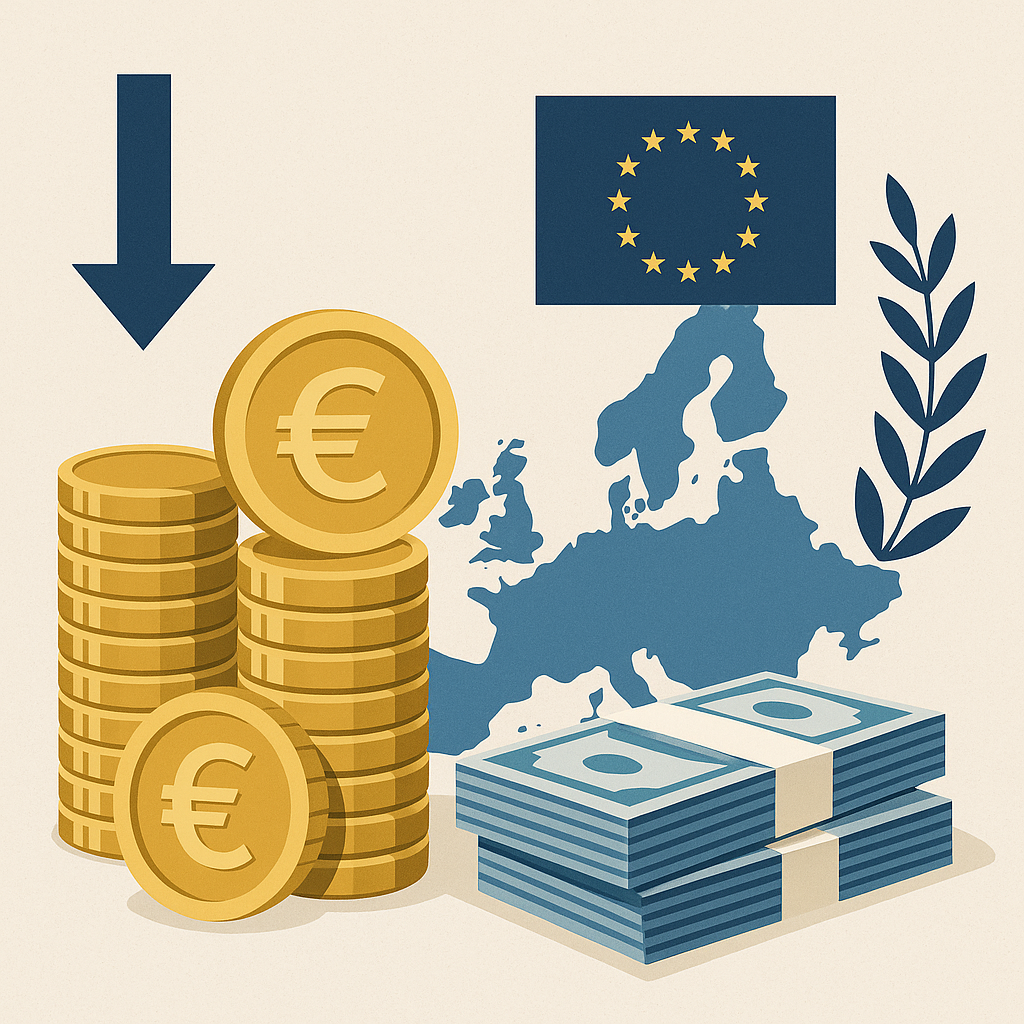
Introduction
Over the past two decades, the Czech Republic has significantly benefited from European Union funding, using it to support regional development, infrastructure, education, environmental protection, and innovation. However, a major shift is on the horizon: according to the Ministry of Regional Development, a reduction of EU funds in the next budget period could reach up to 50%. This forecast presents a serious challenge for the country’s future growth strategy.

A Possible Reduction of Up to 50%
The Czech Republic may see its allocation cut by between 30% and 50% compared to the current 2021–2027 programming period, amounting to a potential loss of over CZK 260 billion. This reduction is linked to the country’s improving GDP per capita, which is approaching the EU average. Ironically, the country’s economic success now makes it less eligible for financial aid, as funding shifts toward less developed regions.
Even with a reduced sum, Czech authorities state the country will likely remain a net beneficiary of the EU budget, but resource management will need to be more targeted and efficient.
What Is Cohesion Policy and How Are EU Funds Distributed?
Cohesion policy is one of the EU’s key instruments for promoting balanced development across all member states. EU funds are distributed based on objective criteria, primarily GDP per capita, and aim to reduce disparities between richer and poorer regions.
The main financial tools include:
- The European Regional Development Fund (ERDF), supporting infrastructure and economic competitiveness.
- The European Social Fund Plus (ESF+), focused on employment and education.
- The Cohesion Fund, for countries whose income is below 90% of the EU average.
Each member state negotiates a Partnership Agreement with the European Commission, which defines the Operational Programmes to be co-financed. Regions are classified into three categories—less developed, in transition, and more developed—and funding is allocated accordingly, with more support for the least developed areas.
A Strong Track Record of EU Support
Since joining the EU in 2004, the Czech Republic has received far more in funding than it has contributed. As of 2024, the country has paid around CZK 936 billion into the EU budget but received over CZK 2 trillion in return, a net gain exceeding CZK 1 trillion.
In 2023 alone, the Czech Republic received roughly CZK 90 billion more than it contributed. Much of this came through the NextGenerationEU recovery plan, aimed at supporting member states in overcoming the economic effects of the COVID-19 pandemic.
Navigating the New Reality
With fewer resources on the table, the country will need to prioritize high-impact projects and maximize the efficiency of every koruna spent. Areas like innovation, green transition, digitalization, and social inclusion should be at the forefront of investment strategy.
Public-private partnerships (PPPs) and alternative sources of funding may also play an increasingly important role in ensuring the continuity of strategic development projects.
Conclusion
The reduction of EU funds presents a significant challenge for the Czech Republic, but it is also an opportunity to reform its investment strategy and increase financial independence. After years of strong support from the European Union, the country must now focus on smarter planning and sustainability. If managed wisely, this transition could lead to more resilient and self-sufficient growth, maintaining the Czech Republic’s competitiveness within Europe.
AI – image generated.
Sources: https://ct24.ceskatelevize.cz/clanek/ekonomika/evropske-penize-pro-cesko-mozna-klesnou-az-na-polovinu-360667,
https://www.novinky.cz/clanek/ekonomika-ceska-republika-loni-dostala-z-eu-o-83-miliard-vic-nez-zaplatila-40508595,
https://www.seznamzpravy.cz/clanek/ekonomika-finance-cesko-loni-dostalo-z-eu-o-90-miliard-vice-nez-odvedlo-245380,
https://www.laceuropa.it/la-politica-di-coesione/?utm_source=chatgpt.com.





